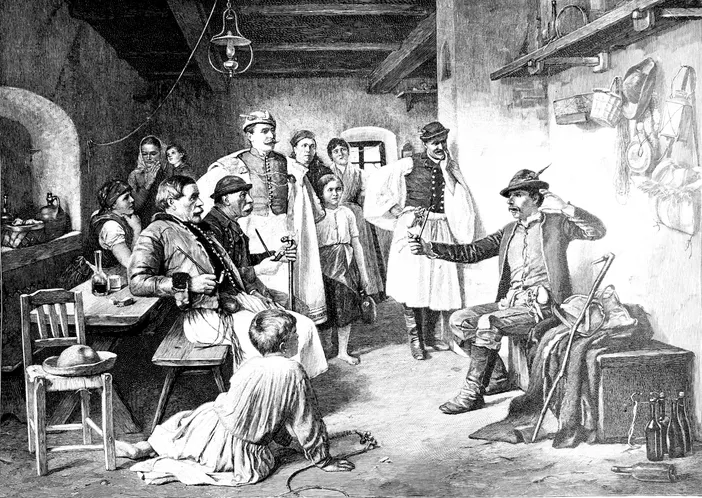History shows us that stories play a vital role in shaping our culture by shaping us. How? Stories bypass our logic, the brain’s defense mechanism. They go over, through, and under logic to reach our hearts and move our emotions.
They allow us to see, feel, hear, and think as the characters in the story.
They put us in their shoes so we experience what they experience. Our defenses come down, and we see the World as they see it.
This is the power of stories; this is why they are so influential.
Facts and figures, history and science, are necessary. How-to books and self-help books contribute to our lives in positive ways. But narratives strip us of our masks, force us to look in the mirror, and decide who we want to be in light of what we have experienced.
Our goal is to follow in the footsteps of classical stories that shook cultures up; stories that saved men and women, boys and girls, from the furtherance of evil in their time; stories like Uncle Tom’s Cabin, Adventures of Huckleberry Finn, A Christmas Carol, and more.
Uncle Tom’s Cabin and Adventures of Huckleberry Finn
Uncle Tom’s Cabin, the famous anti-slave novel, was written before the Civil War and has been credited as a force of good: it changed the attitude of thousands and fueled anti-slavery movements in the 1850s. Harriett Beecher Stowe created a story filled with sympathetic and villainous characters—people others could relate to. Her powerful story was suspenseful and dramatic, keeping readers engaged while putting them in the shoes of people they would never have empathized with otherwise.
Written after the Civil War, Mark Twain’s Adventures of Huckleberry Finn drove home the continued evils of slavery. By putting Huckleberry Finn and Jim the slave on a raft on the Mississippi River together, fleeing Jim’s slave masters, Twain exposed the hypocrisy in the Southern church. He did it to tell a great story and highlight the evil and destructive acceptance of slavery the church condoned.
Bookending the Civil War, both novels drew readers into the hearts and minds of people they didn’t understand. They could feel what Uncle Tom and Jim felt. They could hear what Huckleberry thought of the hypocrisy of Christianity at the time. Most importantly, they had to face where slavery was driving civilization, even after the war.
Thousands of lives were saved by the spurring of the underground railroad. Hundreds of slave owners were convinced to free the men and women they oppressed. Despite the criticism of both books, they have made a lasting impact and helped loosen the death grip slavery had on America at the time.
Charles Dickens saves Christmas and the soul of the World
When Charles Dickens set out to write A Christmas Carol, his country was in the throes of industrialization. Rich people were getting richer off the backs of the poor and child workers. The government was ignoring the plight of the common man.
Dickens walked through London, witnessed the devastation in the streets and factories, and noticed it was consuming everything—even Christmas.
When he put pen to paper, Christmas was an almost forgotten holiday. The church in England barely celebrated it. Many clergy members thought it was an insignificant day not to be promoted due to the buying and selling of gifts.
But Dickens saw it as a time of year when men and women could come together, celebrate the immeasurable value of human life, share a time of untarnished love, and remember their Savior who was born in poor circumstances, lived a selfless life, dying for the redemption of mankind.
This little book, written in weeks, lit a fire in the hearts of his countrymen. The Christmas season became a time for family, charity, and light. The working poor were looked on more favorably. And it helped push changes in Britain forward, saving thousands of lives.
For example, in 1844, a year after A Christmas Carol was published, the Royal Commission of Health in Towns was founded. They investigated the working conditions of the working class. Based on their findings, the Labour in Factories Act was passed, forcing factories to be safer, ensuring machinery was guarded, and keeping men and women from dying in their gears.
The Bible: Forever Changing Lives
Volumes have been written about the Bible and its impact on billions of lives. We want to highlight one story in the Bible in particular. In the book of Esther, we meet a man named Mordecai, who saved the King’s life. But the King didn’t know it was Mordecai who protected him.
As time passed, Mordecai was targeted for death by the King’s henchman. One night, the King was tired, couldn’t sleep, and decided to have his scribe read him stories from the official storybook. To the King’s surprise, the scribe read about Mordecai foiling a plot to assassinate the King. Driven to honor Mordecai, the King called in the henchman and forced him to throw a parade to honor Mordecai’s valor. The story saved Mordecai’s life and made him a hero.
Because his life was spared, Mordecai was able to consult Esther as a plot to kill all the Hebrews was implemented. Esther took his advice, saved her people, and the Hebrew nation lives on today. The story of Mordecai’s actions to protect the King led to him being able to instruct Esther, who in turn saved hundreds of millions of people throughout history.
In the Heat of the Moment
Taking a stand is always challenging, especially when the heat is on, and the stance goes against the prevailing wisdom. But if we are on the side of Truth, that is when it will make the most impact.
- Stowe wrote Uncle Tom’s Cabin in the face of mounting pressure to make slavery more acceptable.
- Twain wrote Huckleberry Finn in the face of the South’s defiance to abolish slavery—and the church’s continued weakness on the issue.
- Dickens wrote A Christmas Carol at the height of greed in Britain, convicting the upper class of their callous ways while inspiring the nation to turn back to Christ and celebrate the Christmas season.
- The Bible has constantly confronted people when a change is needed to happen the most.
In Their Public Square
All of the stories mentioned were written in the presence of their enemies, so to speak. The storytellers didn’t take to the hills or another country and write their stories from afar. They went out into their public square, saw what was happening, determined not to shrink back, and did something about it.
They wrote amid the pain and turmoil they were living in.
They told their stories in their communities, amid their detractors, and put their names on the work. It was their way of saying, “It’s time to be brave. It’s time to take a stand. It’s time to save lives.”
What story do you have to tell that will save mankind? It might seem small in comparison, but only history will tell how far and how wide your story will travel.
Only time will tell how many lives you save through your stories.


